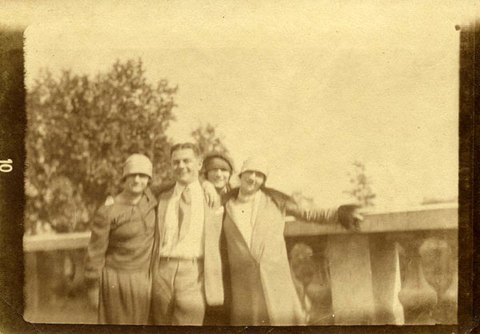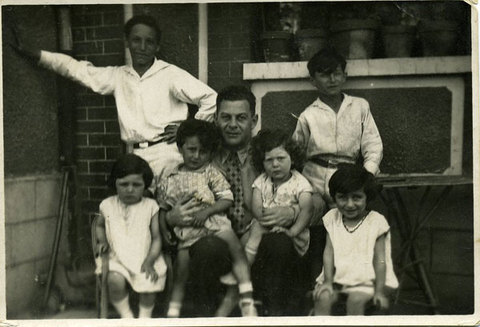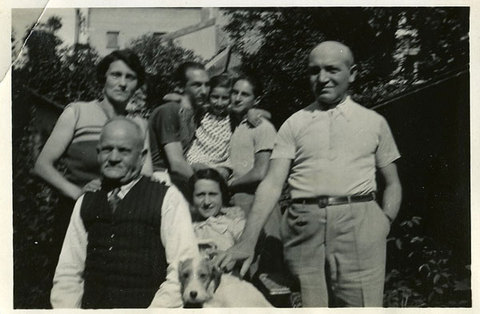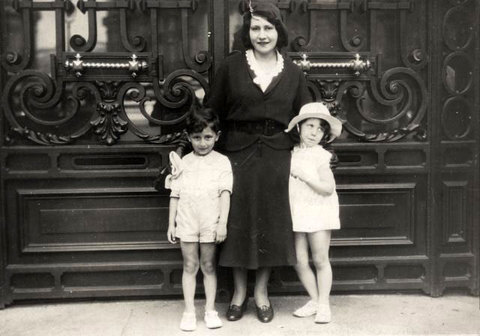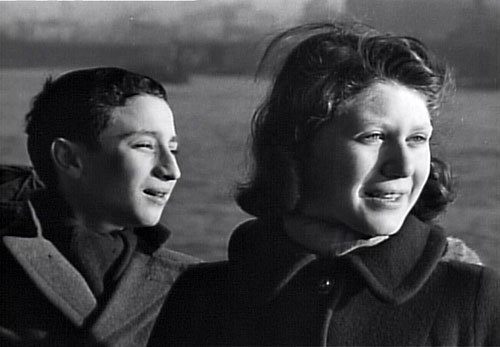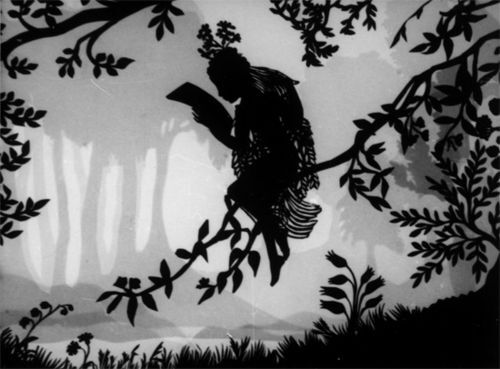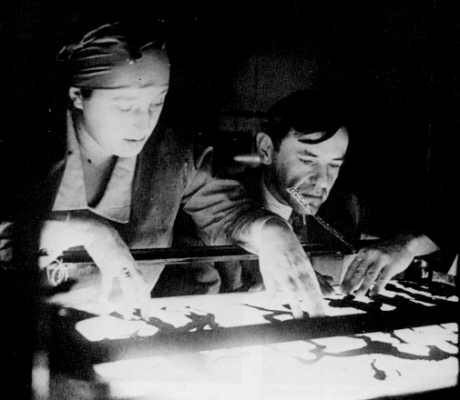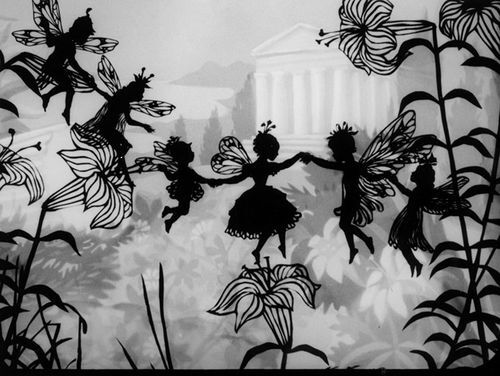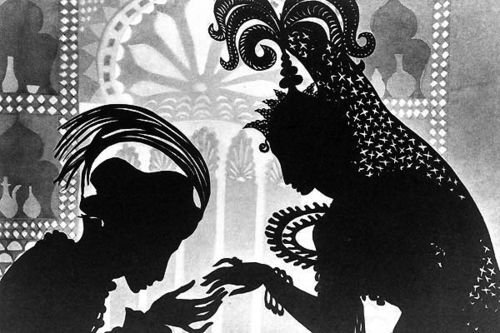Midori Snyder's Blog, page 6
March 8, 2023
Emile as a Young Sailor
I am a bit late in posting this, but I want to acknowledge my father's participation in WWII, which was considerable.
My Jewish father was 16 when he fled Nazi-Occupied France and arrived in the US. At 17, he enlisted in the Navy and served in almost every major Naval battlefield, including Normandy, where he fought to liberate France. His last engagement was in Okinawa, where a Kamikaze jet fighter bombed the destroyer and cast him, along with others, into the sea. He floated, holding onto debris for close to 24 hours before being rescued. He was, like many men of WWII, modest and quiet about his service. He lost good friends, and he brought home to their families the last papers and items from their lives at sea.
And now, many years later, I am also giving thanks to my son, who served as a Navy Seal for over fifteen years, and in many battles, crashing helicopters, friendly fire, shrapnel, and once more, having to bring home in flag-draped coffins those men he lost to the war.
February 22, 2023
The Mystery of Family Photos
This post is really for my cousin Fran��ois, who has been visiting the blog to see what photos of our families are appearing -- and happily identifying those I don't know. I have these three photos that I love for the way the people are grouped, smiling and staring back at the photographer. I am not sure who everyone is -- but I know I am related to them all and that makes them seem even more mysterious to me. I can't help but search their faces for a sign of myself, a gesture, a smile. So here is what I do know of the photos and I am hoping Fran��ois, that you can identify the others in the pictures. (Click on the image for a larger version.)
The sepia photo above is of my grandfather Frederick Snyder -- standing there so rakishly among those women. I am not sure if any of them is my grandmother Madeleine -- their hats are pulled so low that it is hard to be sure. But if not her...then perhaps they are three of her six sisters? Perhaps it is Madeleine who took the photo? And they look like they are having so much fun, leaning against Madeleine's big American boyfriend. I wonder if they knew he that Madeleine was already pregnant by someone else when he married her?
This is a later photograph -- Fredrick now in the pose of a doting father, with my father Emile and his sister Rosine perched on Frederick's knees. And the children behind? I love their postures --especially the oldest one, leaning against the wall with all the humor and panache of an adolescent. I have some guesses...but I'll see if Fran��ois can enlighten me.
Here is the last one, and it is later still. I think some of the adults here are the children from the photo above. For some reason, I feel like the photo must have been taken before the war. People seem so relaxed, playful -- the younger ones mug in the back. (Even as I look at it now, the two young men holding up the girl are the same two older boys from the photo above. And the women! How much like an older version of the two girls!) But judging from the clothes, it also seems later, late enough that the war is hovering not far away.
February 21, 2023
Oran is Moving Along
It seems as if it has taken such a long time to first write that long rambling version of the trilogy and then years later re-discover it and decide to give it what it needed: a good copy editor, a good proof reader, and from me...a long careful scrutiny of my writing abilities. The texts are much cleaner now. New Moon is solid, and without much of the narrative kitchen sink approach. Sadar's Keep was a long hot mess -- interesting to read -- but also in much need of trimming here and there.
I have begun ploughing through Beldan's Fire, in many ways the longest of the three books, and the most stuffed and over stuffed as I tried to get everything in. Three of us talked about extending the series from three to four novels. Mostly so that the last discovered Queen and those glorious Namire mermaids could have a bit more room in the overall story. (And because my cover artist can't wait to design cover for them.)
But, I have one more plan for the series and that is to create a new Oran novel specifically for Dagar. Re-reading the ending of the third book (Beldan's Fire) just made me realize how important a character he was for the books ending. And the sorrow he went through losing Lirrel and at the same time, having all of her memories now inside of him. Dagar it seems to me is the perfect person to go on a journey and discover more of Oran and in a way to bring back peace, place by place.
February 18, 2023
A Writer and a Mother. I Must Be Crazy
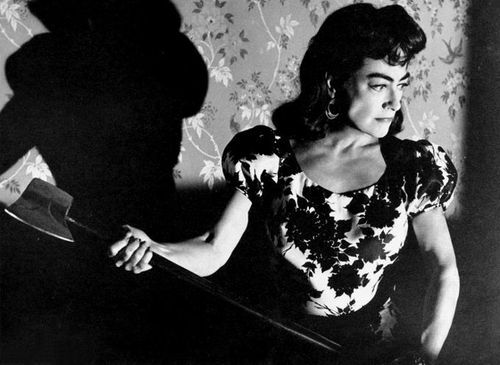
I keep on my bulletin board two newspaper headlines to remind me that I just might be a few bubbles off plumb. The Milwaukee Journal (March 30, 1987) boldly states "15-year study of writers finds high rate of mental illness," while the Toronto Star (August 16, 1986) announces "Researcher probes ties between insanity and being a mother."
Wow...with odds like that, it's a wonder that I get anything done without burning down the house, or dancing naked in the front yard on a full moon with a colander on my head.
Do I hear voices in my head? Sure I do...it's called writing dialog. Do I get anxious and tear my hair? Sure...it's from having a pair of risk-taking, independent children who insist on doing insane things of their own (for example sailing a 22ft sailboat across the Great Lakes in September and surviving gail force winds in the Straits of Mackinaw, or hitching a ride on a shipping boat from Sardinia to Barcelona to surprise a friend.) But hey, books get written, children grow up, and so far nobody has gotten the ax.
Photo: Joan Crawford in Straight Jacket.
February 17, 2023
Madeleine and Bohemian Paris
This has been such a fertile time looking toward the past. Daily, thanks to my cousin Earl (an amazing genealogist) another chapter in the narrative history of my family opens up. I should write a novel -- well maybe novels about my family. Here is a bit of news that Earl sent me this morning about Madeleine Brittman my paternal grandmother, born in Paris to Romanian-Jewish immigrant parents:
Over the years, I tried to find Madeleine's birth in Paris in arrondissements 4, 8, 9, 10, & 11 on the right bank, and 5, 14, & 15 on the left bank, before I struck gold last week with 18. Montmartre - the 18th - is in the furthest district due north in Paris, and includes Sacr�� Coeur Basilica....When your grandmother was born there in 1904, Montmartre was "the" hotbed of artistic activity; home to Picasso, Gris, Modigliani, the Nabis, and of course writers such as Apollinaire and Jarry, the Naturalists and the Symbolists. -- The 18th wasn't the traditional district for immigrants or provincials, unless they had Bohemian souls. --- It's fascinating to think about your Romanian great-grandparents were living there at that fervent time!
Indeed. My grandmother was one to take chances even when the habit later warred with her desire to be a model bourgeois matron. She had a tryst with a married man who lived near by and gave birth as a single mother to my father Emile. She was brave. I try to imagine her in that Bohemian world -- before she married my grandfather -- wanting to make something of her life that was very different from her six sisters, all who would remain in France within the close knit family while she ventured forth.
Here is a beautiful old photograph of my father, Emile, his mother Madeleine, and his sister Rosine (they were a mere 13 months or so apart in age) in Paris in the early 1930s. I love my father's beautiful smiling face here.
Madeleine looks so elegant in her suit and that fabulous hat! She was quite a force of nature, charming and stubborn, generous and terribly opinionated in a way that could be quite shocking. She once told me she sequestered Rosine in the house when Rosine had eczema on her cheeks as a baby. "Oh, zee 'orror, zee shame of it!" she explained. She was also known to deliver what the French call "a round trip ticket," a slap that went both ways across the cheeks if Emile or Rosine misbehaved at some public function. (It probably didn't happen too often -- but you know just the threat of it -- that glaring look, the hand in her lap quietly gesturing back and forth -- would have been enough to silence any naughtiness.)
But she was also indomitable -- the youngest of seven sisters, she fled France under Vichy (they were Jews) alone with her two children and came to the states to find her American husband. Years later, after the divorce (she never remarried), she settled in a tiny, tiny Los Angeles apartment (complete with a Murphy bed) and was a governess for Liz Taylor's children (taught them French), and later worked as a receptionist at a doctor's office. She worked into her 80s and saw a doctor only once after 1935, after a minor stroke at 85. She lived well into her 90s, had her hair done regularly (ala Nancy Reagan -- whom Madeleine pronounced as "tr��s charmant." Politics just wasn't her thing!), and never, never, never lost her thick French accent or her peculiar habit of transforming French into English with startling results. She once told me that she had made a "raped carrot" salad for a luncheon (her Frangelized version of the French "carrottes rapp��," meaning grated carrots). She walked almost five miles daily and revealed to me that her good health was due to her being a "street walker."
And finally, there is this -- the flight from occupied Paris and the journey to the United States:
The Arrival of the SS Excambion at New York Harbor, January 1941
This, too, is an older post, but one that I love to revisit to memorialize my father Emile's life and the journey he took to arrive in the United States as a Jewish teenager fleeing Nazi-occupied France. In this time of trial in our nation where politicians seek to use their positions to engage in mutual venial squabbling and punishing of "enemies" in congress and the administration, I return instead to the purity of the moment my father found true freedom at last in the US.
But I am also delighted to write that I discovered an attractive website called Critical Past -- which captured random films from historical events. In my case, Critical past had a movie of my father turning around and smiling. I started crying instantly. I knew that this was the moment his life was changing, from his past life as a dancer in the Paris Ballet opera house to something entirely different and new. He would become an essential professor of African Languages and Literature. He would publish volumes of poetry in French and English, marry twice, travel to Africa,13 countries along the coast, meet with many emerging African writers, and be an influential force through the journal Pr��sence Africaine.
Can you imagine the most mythical moment of your childhood? That moment when everything changes and you know that going forward you will be profoundly different, that your life as you once knew it would be over. My father Emile was born in Paris -- his father an American ex-patriot and his mother a beautiful young Jewish woman -- anxious to leave her working class origins behind her. They lived in a fashionable area of Paris, and my father and his sister Rosine studied ballet at the Paris Ballet Opera House. By the time he was a teenager, my father was on his way to becoming a principal dancer.
Then WWII happened and the Occupation of France in collaboration with the Vichy Government happened, and my father's life as a dancer was shattered. They were Jews and so no longer welcomed at the Opera House. For the last six months of his life in Paris not one friend would speak to him -- they would cross the street to avoid him for fear of his pariah status rubbing off on them. My father rose very early in the morning before curfew and slipped through streets unseen in order to be first in the bread lines.
My Grandfather had been out of the country on business when the Germans invaded and was unable to return to France. But he was able to provide the children with American passports through the embassy. My grandmother and the children traveled to Portugal where they were promised passage on a cargo ship, the SS Excambion that was carrying a number of dignitaries (Madame Curie's daughter on her way to try and convince the US to enter the war on behalf of the Jews, and Isaiah Berlin and his future wife) and many Jewish children traveling alone to relatives in the US.
The photo above is a still from a short film of the refugees arriving in NYC in January, 1941. Someone sent the link to the film to me knowing my father's history, and asked "See anyone you know?" In the opening shot two young teens turn to face the camera and there they are -- my father at about 15 and his sister about 14. Later in the film, there is a close up of the two of them leaning out to take in the sight of NYC and the Statue of Liberty. (If you click the link you see the whole short film.)
This moment was very important to my father and he spoke of it often, included it in his poetry. So how amazing is it that some 80 years later and 29 years after his death this film surfaces, and I can see him again as a young man leaning into the sun, into his future. Yeah, you know I cried when I saw it.
February 16, 2023
Marginalia: Kissing Snails
Wouldn't it be wonderful if we could publish our novels with such lovely marginalia? There is something so unexpectedly tender about these two snails meeting and kissing in the margin. Marginalia art has a vital life of its own -- existing side by side with text but not necessarily commenting on the reader. It's the mind reading and wandering a little bit, hearing the whispered words in the head, but delighting in the visual art that sidetracks and then returns one to the text, refreshed. And all in a matter of moments.
Art: Biblioth��que municipale de Lyon, Ms 6881, detail of f. 72. Book of Hours, use of Chalon. 15th century.
The Novels of Mythic and Perilous Travel Across Borders
"Traveling is a brutality. It forces you to trust strangers and to lose sight of all that familiar comfort of home and friends. You are constantly off balance. Nothing is yours except the essential things: air, sleep, dreams, sea, the sky - all things tending towards the eternal or what we imagine of it.��� --Cesare Pavese
Here is a short list of my favorite novels that I have reviewed over the last ten years that in many ways embody the sensibilities of Pavese's brilliant observation:
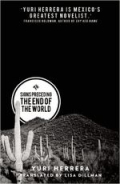 Signs Preceding the End of the World by Yuri Herrera is an amazing and haunting work. Makina is given a note from her mother to take to an older brother who has disappeared into the North. Along the way, Makina encounters ambiguous helpers: the thug who mysteriously owes her mother, the trading of favors with a coyote, the strangers who pull her along the road, the rivers, and mountain passes, and then the cities themselves, full of mazes, flags, and shops until she arrives at a place to discover her brother, changed utterly. Read more > >
Signs Preceding the End of the World by Yuri Herrera is an amazing and haunting work. Makina is given a note from her mother to take to an older brother who has disappeared into the North. Along the way, Makina encounters ambiguous helpers: the thug who mysteriously owes her mother, the trading of favors with a coyote, the strangers who pull her along the road, the rivers, and mountain passes, and then the cities themselves, full of mazes, flags, and shops until she arrives at a place to discover her brother, changed utterly. Read more > >
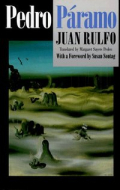 Pedro Paramo by Juan Rulfo, opens with a spare compelling prose, like a darkly lived fairy tale, hinting at the ghostly journey to come in an altered landscape. In late August Juan travels to Comala, a town so hot and dry, popular myth has it that "when people die and go to hell, they return for a blanket." Juan is greeted by Eduviges Dyada, an old friend of his mother's, and quickly learns that Pedro P��ramo, the father he is seeking, is long dead. But the conversation takes an odd turn, as Eduviges tells Juan that his mother had told her just that day to expect him. When Juan tells her his mother is dead, Eduviges shrugs and responds, "So that was why her voice was so weak." Read more > >
Pedro Paramo by Juan Rulfo, opens with a spare compelling prose, like a darkly lived fairy tale, hinting at the ghostly journey to come in an altered landscape. In late August Juan travels to Comala, a town so hot and dry, popular myth has it that "when people die and go to hell, they return for a blanket." Juan is greeted by Eduviges Dyada, an old friend of his mother's, and quickly learns that Pedro P��ramo, the father he is seeking, is long dead. But the conversation takes an odd turn, as Eduviges tells Juan that his mother had told her just that day to expect him. When Juan tells her his mother is dead, Eduviges shrugs and responds, "So that was why her voice was so weak." Read more > >
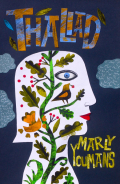 Thaliad by Marly Youmans composes her story in free verse reminiscent of heroic epics (a sort of Homer meets Gerald Manley Hopkins), Thaliad recounts the aftermath of a fiery apocalypse and the dangerous journey of a band of children led by a girl whose prophetic visions are guiding them. They seek a mystical a sanctuary on the edge of a lake where, even as children, they must confront the challenges of re-creating a world illuminated by hope and love. In this stunning narrative the eternal is always close at hand in both violent and transfigurative powers. Read more >>
Thaliad by Marly Youmans composes her story in free verse reminiscent of heroic epics (a sort of Homer meets Gerald Manley Hopkins), Thaliad recounts the aftermath of a fiery apocalypse and the dangerous journey of a band of children led by a girl whose prophetic visions are guiding them. They seek a mystical a sanctuary on the edge of a lake where, even as children, they must confront the challenges of re-creating a world illuminated by hope and love. In this stunning narrative the eternal is always close at hand in both violent and transfigurative powers. Read more >>
 The Tiger's Wife by Tea Obrecht is an astonishing novel, set in what was once Yugoslavia over the course of WWI, WWII, and the recent wars that resulted in its dissection into new territories. War forms an continuous backdrop throughout the novel, often as a distant but deeply felt anxiety and sometimes exploding on the community. Tavelling is a hazard as boundaries shift with the conflicts and "our city," or "our fields" abruptly become someone else's property. Identities shift too as the long married wife whose origin, faith, or language suddenly mark her as an enemy to the new state. Nadia, the novel's protagonist, is a young pediatrician who sets out on a perilous journey, crossing newly minted borders to understand the reasons for her beloved grandfather's strange disappearance and his death alone in a remote village. Read more > >
The Tiger's Wife by Tea Obrecht is an astonishing novel, set in what was once Yugoslavia over the course of WWI, WWII, and the recent wars that resulted in its dissection into new territories. War forms an continuous backdrop throughout the novel, often as a distant but deeply felt anxiety and sometimes exploding on the community. Tavelling is a hazard as boundaries shift with the conflicts and "our city," or "our fields" abruptly become someone else's property. Identities shift too as the long married wife whose origin, faith, or language suddenly mark her as an enemy to the new state. Nadia, the novel's protagonist, is a young pediatrician who sets out on a perilous journey, crossing newly minted borders to understand the reasons for her beloved grandfather's strange disappearance and his death alone in a remote village. Read more > >
Lotte Reiniger: Silhouette Fairy Tale Films
I am totally gobsmacked by German artist Lotte Reiniger's gorgeous black papercuts that she used to make silhouette animated fantasy films as well as beautiful book illustrations (when money could not be found for the films). Her work spans some 60 years (from 1919 to 1979), the early work developed in Germany, then later after the war she settled in London where she continued her work on short animated films and illustrations. Among her prodigious body of work, she created the first feature length animated film The Adventures of Achmed (far ahead of Disney!), an animated version of Dr. Dolittle and the Talking Animals, and a series of short films from Grimm's fairy tales. In the 30's while fleeing Nazi Germany, she managed to make 12 films -- including the lovely version of "Papageno" from Mozart's opera The Magic Flute.
Much of her work can still be found on the internet (oh happy magpie that I am); and there are wonderful examples of work done by contemporary film students in imitation of Reiniger's style as they learn the skill of silhouette animation.
Barry Unsworth: Morality Play and The Best Long Sentence
I have respect for authors who manage to write incredible long, complicated sentences -- but with such consummate skill and daring that I inhale deeply and then read it aloud, trying to see if I can make it to the end in all one exhale. The are sentences that enter the text with the purpose of condensing in single moment a world of detail and history. More often as not, it serves in its fullness as an expression of the entire novel. And when it arrives (as it always does) early in the novel, then you experience the emotional content of a novel before it has fully begun.
I am re-reading Barry Unsworth's remarkable novel, Morality Play, set in the English middle ages, narrated by a young priest escaping life in the cloisters and stumbling into a troop of actors on their way to perform for a Lord. His desperate circumstances are such that he asks to join them, mostly for protection and the chance to eat. Reluctantly, but out of necessity for they need an extra man to complete their cast, they accept him. While relieved to have found help with his situation, the young priest Martin privately reflects on his failures as a priest, his dalliances with women, and his shame at having abandoned the Bishop who treated him kindly. And he sums up his life and his character in this one sentence that is a complex mixture of apology, of contrition mingled with pride and an unearned arrogance.
"First there was the shame, to cause distress to my Bishop, who had given me the tonsure, who had always treated me like a father, because this was not the first time I had left without permission but the third, and always in the May-time of the year at the stirring of the blood and this time the reason was different but the stirring was the same, I had been sent to act as secretary to Sir Robert de Brian, a noble knight and generous in his benefactions but not of discerning taste in his letters and in short a very vile poet who set me to transcribing his voluminous verses and as fast as I copied them he would bring others."
And finishes this list of causes with, "All this I endured," which describes by it internal contradictions, a narrator we may like, but should not trust.
February 15, 2023
"Distant Footsteps" Cesar Vallejo
C��sar Vallejo: "Distant Footsteps"
"Distant Footsteps" from The Black Heralds (1919)
My father is asleep. His august face
expresses a peaceful heart;
he is now so sweet...
if there is anything bitter in him, it must be me.
There is loneliness in the house; there is prayer;
and no news of the children today.
My father stirs, sounding
the flight into Egypt, the styptic farewell.
He is now so near;
if there is anything distant in him, it must be me.
My mother walks in the orchard,
savoring a savor now without savor.
She is so soft,
so wing, so gone, so love.
There is loneliness in the house with no bustle,
no news, no green, no childhood.
And if there is something broken this afternoon,
something that descends and that creaks,
it is two old white, curved roads.
Down them my heart makes its way on foot.
(translated by Clayton Eshelman)
Midori Snyder's Blog
- Midori Snyder's profile
- 87 followers





